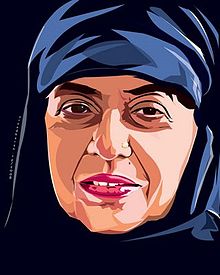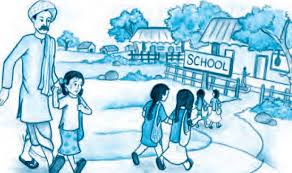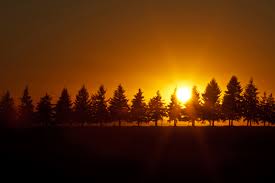An Introduction by Kamala Das | Autobigraphical poem
An Introduction by Kamala Das
Que. Discuss Kamala Das as a Confessional poet with reference to 'An introduction'.
Que. Discuss An Introduction as an autobiographical poem of Kamala Das.
Introduction : Kamala Das :-
Kamala Das popularly known by her one-time pen name Madhavikutty is one of the most popular Indo-Anglian poets. Her popularity is based chiefly on her short stories and autobiography, while her oeuvre in English, written under the name Kamala Das, is noted for the poems and explicit autobiography. She was also a widely read columnist and wrote on diverse topics including women's issues, child care, politics among others etc.
Kamala's poetry is confessional and autobiographical. Her poems have often been considered at par with those of Anne Sexton and Robert Lowell. Here we find the best expression of feminine sensibility. She expresses her desire for love with open boldness and great frankness.
| Kamala Das | |
|---|---|
| Profile | |
| Born | 31 March 1934, Kerala |
| Died | 31 May 2009, Pune |
| Profession | Poet, Novelist, short story writer |
| Pen name | Madhavikutty |
| Notable works | Ente katha, my story, the descendants |
| Notable awards | Sahitya akademi award, Asian poetry prize |
An Introduction by Kamala Das :
An introduction is an autobiographical poem by Kamala Das. She was shortlisted (nominated) for the Nobel Prize in 1984. She has written a number of verses in English, some are :
1) summer in Calcutta,
2) the descendants,
3) the old playhouse and other poems.
An Introduction is a revolt of an Indian woman against the male dominated society. Kamala Das through these lines has presented the subordination of women in a patriarchal. Through these verses she depicts the cry of every women in India.
Kamala Das attempts to revolt against the imposed norms of the society. She portrays how women is subjected to restrictions and expected to remain under confirmational norms of the society at each step. The poem is a feminine cry against a biased society.
Kamla Das begins her poem an introduction with following lines :
"I don't know politics but I know the names
of those in power and can repeat them like
Days of week, or names of months, beginning with Nehru..".
These introductory lines are her satire against the male dominated world. She suggests that she has not much interest in politics, although, she knows some top politicians, who are mainly gentlemen.
She introduces herself as an Indian :
" very brown, born in Malabar".
She calls herself a multilingual : can speak in three languages, write in two and dream in one. When she writes in English, people suggest her not to write in this language as it is not her mother-tongue. She does not like any interference in her use of language :
"Every one of you? Why not let me speak in
Any language I like?"
At one instance she says:
"Why not leave me alone?"
Kamla Das' language comes to her naturally as, "cawing is to crow or roaring to the lions".
The poetess describe her growth from childhood to the adolescence in an open manner:
"I became tall, my limbs swelled, one or two places sprouted hair".
We see the frankness and the boldness of the poetess. Syed Anamuddin in his book, World poetry in English, writes:
" modern Indo-anglian poets treat the sexual theme with boldness."
Kamla Das describes her early sexuality and painful experience of love making in an utter frankness, she writes:
he did not beat me,
but my sad women body felt so beaten".
Kamla Das describes her pregnancy :
"the weight of my womb and breasts crush me".
Like most modern poets Kamla Das also uses free verse. This means the poem does not follow any particular rhyme or rhythm. The poem an introduction gets its music by the use of alliteration and assonance like :
"Cawing is to crow"
Kamla Das uses the rhythm of spoken speech.
"Why not let me speak in the language i like".
To conclude, an introduction is a fine example of Indian English poetry. Kamla Das does not imitate the English poets like the earlier Indian English poets did. She has the Indian ethos and her own individual style.
Reference: youtube/Prof. B.K. Mishra.
Have a look at the text of the poem an introduction:
An Introduction
I don't know politics but I know the names
Of those in power, and can repeat them like
Days of week, or names of months, beginning with Nehru.
I am Indian, very brown, born in Malabar,
I speak three languages, write in
Two, dream in one.
Don't write in English, they said, English is
Not your mother-tongue. Why not leave
Me alone, critics, friends, visiting cousins,
Every one of you? Why not let me speak in
Any language I like? The language I speak,
Becomes mine, its distortions, its queernesses
All mine, mine alone.
It is half English, half Indian, funny perhaps, but it is honest,
It is as human as I am human, don't
You see? It voices my joys, my longings, my
Hopes, and it is useful to me as cawing
Is to crows or roaring to the lions, it
Is human speech, the speech of the mind that is
Here and not there, a mind that sees and hears and
Is aware. Not the deaf, blind speech
Of trees in storm or of monsoon clouds or of rain or the
Incoherent mutterings of the blazing
Funeral pyre. I was child, and later they
Told me I grew, for I became tall, my limbs
Swelled and one or two places sprouted hair.
When I asked for love, not knowing what else to ask
For, he drew a youth of sixteen into the
Bedroom and closed the door, He did not beat me
But my sad woman-body felt so beaten.
The weight of my breasts and womb crushed me.
I shrank Pitifully.
Then … I wore a shirt and my
Brother's trousers, cut my hair short and ignored
My womanliness. Dress in sarees, be girl
Be wife, they said. Be embroiderer, be cook,
Be a quarreller with servants. Fit in. Oh,
Belong, cried the categorizers. Don't sit
On walls or peep in through our lace-draped windows.
Be Amy, or be Kamala. Or, better
Still, be Madhavikutty. It is time to
Choose a name, a role. Don't play pretending games.
Don't play at schizophrenia or be a
Nympho. Don't cry embarrassingly loud when
Jilted in love … I met a man, loved him. Call
Him not by any name, he is every man
Who wants. a woman, just as I am every
Woman who seeks love. In him . . . the hungry haste
Of rivers, in me . . . the oceans' tireless
Waiting. Who are you, I ask each and everyone,
The answer is, it is I. Anywhere and,
Everywhere, I see the one who calls himself I
In this world, he is tightly packed like the
Sword in its sheath. It is I who drink lonely
Drinks at twelve, midnight, in hotels of strange towns,
It is I who laugh, it is I who make love
And then, feel shame, it is I who lie dying
With a rattle in my throat. I am sinner,
I am saint. I am the beloved and the
Betrayed. I have no joys that are not yours, no
Aches which are not yours. I too call myself I.

.jpeg)

.jpeg)
.jpeg)

.jpeg)




Comments
Post a Comment
Your Views and Comments means a lot to us.